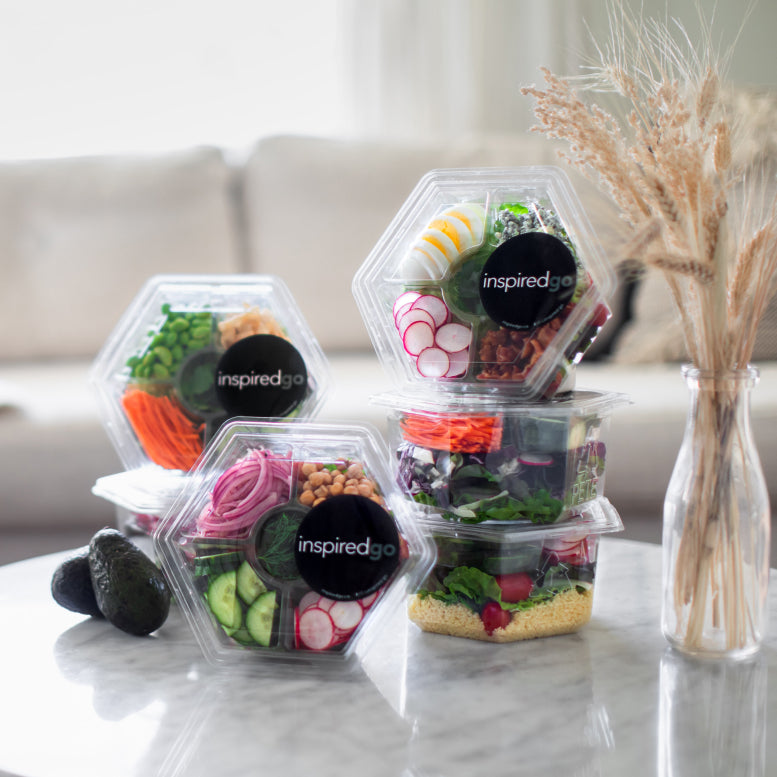Are Eggs And Cheese Allowed On A Vegetarian Diet?
Table of Contents
1. Understanding Vegetarianism: The Inclusion of Eggs and Cheese
2. How Do You Get Enough Protein on a Vegetarian Diet?
3. What Are Healthy Fats to Eat on a Vegetarian Diet?
4. How Does Vegetarian Meal Delivery Save Time?
1. Understanding Vegetarianism: The Inclusion of Eggs and Cheese
Vegetarian diets are gaining popularity, not only for their potential health benefits but also for their positive impact on the environment. When it comes to vegetarianism, there's often confusion about what foods are acceptable. For instance, the question arises, "Are eggs and cheese allowed on a vegetarian diet?" The answer depends on the type of vegetarianism one adheres to. Lacto-vegetarians, for instance, include dairy products like cheese in their diet, whereas ovo-vegetarians consume eggs. Those who follow lacto-ovo vegetarianism include both eggs and dairy products in their meals. However, strict vegetarians or vegans exclude all animal products, including eggs and cheese, from their diet. It's essential to understand the nuances of these dietary choices to ensure you're correctly adhering to your chosen diet and meeting your nutritional needs.
Order fresh salads today →


2. How Do You Get Enough Protein on a Vegetarian Diet?
Ensuring sufficient protein intake on a vegetarian diet is achievable with a variety of protein-rich plant-based foods such as lentils, chickpeas, tofu, quinoa, tempeh, and dairy products. These ingredients provide essential amino acids needed for muscle maintenance, energy production, and overall health. Vegetarian meal delivery services address protein needs by designing meals rich in these plant-based protein sources, ensuring balanced macronutrient profiles. Pre-portioned servings prevent overconsumption while guaranteeing adequate protein intake. Nutritional transparency, including protein content per serving, helps customers track their daily requirements effectively. By removing the challenges of meal planning and preparation, vegetarian meal delivery services provide a reliable way to meet protein goals without hassle.
Choose your salads and schedule delivery →
3. What Are Healthy Fats to Eat on a Vegetarian Diet?
Healthy fats play a critical role in energy production, hormone regulation, and brain function, and vegetarian diets offer numerous sources of these beneficial fats. Foods like avocados, nuts, seeds, olive oil, and dairy products are rich in heart-healthy fats. Vegetarian meal delivery services incorporate these ingredients into pre-prepared meals to ensure a balanced intake of essential fatty acids. Meals are designed to maintain a proper macronutrient balance, supporting overall health and sustained energy. Transparent nutritional labeling allows customers to monitor their fat intake, promoting dietary awareness. By offering ready-to-eat meals packed with healthy fats, vegetarian meal delivery simplifies achieving a balanced diet.
Get fresh salads and snacks delivered →
4. How Does Vegetarian Meal Delivery Save Time?
Inspired Go streamlines healthy eating through pre-prepared vegetarian meals that eliminate the need for grocery shopping, cooking, and cleanup. With subscription options, customers can schedule weekly deliveries, ensuring they always have access to nutritious, plant-based meals. Every dish arrives pre-portioned and ready to eat, removing the stress of portion control or recipe planning. Inspired Go’s transparent nutritional labeling also allows customers to track calories and macronutrients easily. Whether managing a busy professional life, a family schedule, or personal health goals, Inspired Go makes it simple to prioritize nutrition without compromising on time or convenience. These ready-to-eat meals support balanced eating with zero effort.
Try our fresh, ready-to-eat salads →
Frequently Asked Questions
A vegetarian diet focuses on plant-based foods, eliminating meat, poultry, and fish while including fruits, vegetables, grains, legumes, nuts, and seeds. Depending on the type of vegetarianism, it may also include animal-derived products like dairy and eggs. Popular variations include lacto-ovo vegetarian (includes eggs and dairy) and lacto-vegetarian (excludes eggs but includes dairy). The diet is often chosen for ethical, environmental, or health reasons and supports a nutrient-dense lifestyle when properly balanced.
Vegetarian foods include a wide variety of plant-based options like fruits, vegetables, whole grains, legumes, nuts, and seeds. Dairy products such as milk, cheese, and yogurt, as well as eggs, are included in lacto-ovo vegetarian diets. Vegetarian-friendly dishes range from hearty grain bowls and vegetable curries to pasta, soups, and salads. Many processed foods, such as chips or baked goods, can also be vegetarian, though reading labels is key to avoiding hidden animal-based ingredients.
Yes, many vegetarians eat eggs, depending on their dietary preference. Those following a lacto-ovo vegetarian diet include both eggs and dairy products, while lacto-vegetarians exclude eggs but consume dairy. Eggs are an excellent source of protein, vitamins, and minerals, making them a valuable addition to a vegetarian diet. However, vegans avoid eggs entirely, as their diet excludes all animal-derived products, including dairy and honey.
Vegetarians can meet their protein needs by incorporating a variety of plant-based and animal-free sources. Protein-rich options include legumes (lentils, chickpeas, black beans), tofu, tempeh, nuts, seeds, and whole grains like quinoa. For those who consume dairy and eggs, options like Greek yogurt, cheese, and eggs provide additional high-quality protein. Combining different plant proteins, such as rice and beans, ensures a complete amino acid profile, supporting muscle repair and overall health.
Yes, eggs and cheese are allowed on a lacto-ovo vegetarian diet, which includes both dairy products and eggs alongside plant-based foods. These ingredients are excellent sources of protein, calcium, and other essential nutrients. Lacto-vegetarians exclude eggs but include cheese and other dairy products. Vegans, however, do not consume eggs, cheese, or any other animal-derived products, focusing solely on plant-based foods and alternatives.

